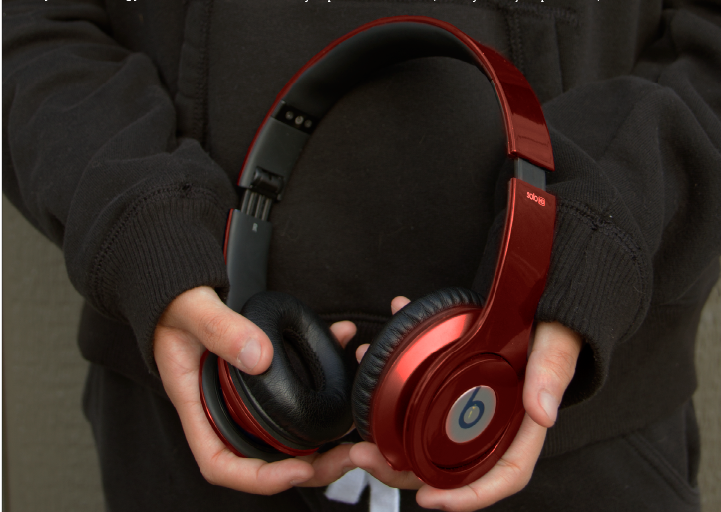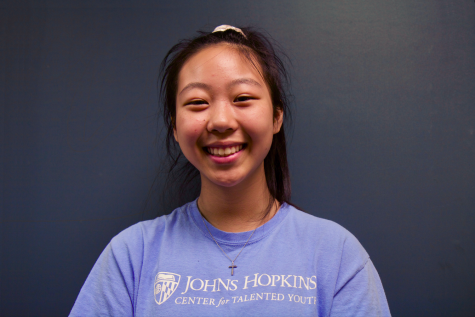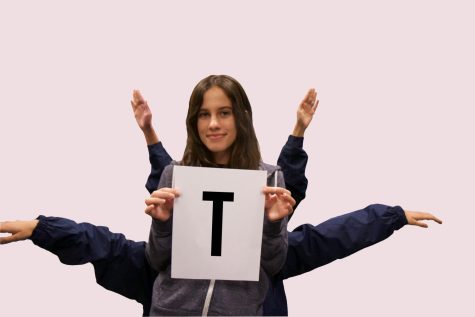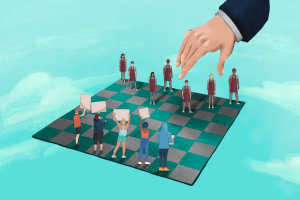Tapping to the beat: Rap’s influence on culture
October 5, 2018
Post Malone, XXXTENTACION, Kendrick Lamar, Cardi B, Drake — these renowned rappers have topped Billboard charts this year. Similar to the prevalence of swing music in the 1940s and the dominance of pop and punk in the early 2000s, rap music has recently experienced a surge in popularity.
Rap is a musical genre in which rhythmic and rhyming lyrics are spoken to musical accompaniment. This style of music is at the heart of a continually growing but well-established style now known as rap, a culture that supports self-expression through a combination of music, dance and art. Rap songs top the charts for most-streamed, with Drake’s “God’s Plan” currently in first place. Although rap was already experiencing some levels of popularity in the early 1990s with the development of “gangster rap” and pop-rap crossovers, the music genre never quite took the masses by storm. So what has changed?
“Rap culture is a constantly changing set of norms, and it’s almost undefinable because around every 5 to 10 years, it is basically recreated,” said Jeffrey Bale, U.S. government and economics teacher, who has enjoyed rap music since his youth and even dabbled in producing it. “If you look at the origins of what hip hop culture was, it was largely inner-city party culture. Back then, it was the relationship of an MC and a DJ, and now that’s a lot less the case. DJ’s are just not really a part of hip hop, and rap has completely spread out of urban areas.”
Rap’s recent renewal can be accredited to new platforms available to the public. Today, the process for aspiring rappers to put their work out into the world is easier than ever — just compose a beat on a computer and lay down a vocal accompaniment, and the beginnings of a song are already at work. Finally, fancy equipment and pricey resources aren’t necessary. With the addition of streaming platforms such as SoundCloud, Spotify and Apple Music, these amateur musicians have the power of self-publicity and exposure. Rappers such as Lil Uzi Vert, 6ix9ine, and Lil Peep are dubbed “SoundCloud rappers” for this very reason. Today, digital platforms help new musicians showcase their talents in hopes of being noticed, breaking free from the traditional constraints of the music industry. There are seemingly no rules: one does not have to be good at guitar or have strikingly good looks — one just needs talent.
Some of these new SoundCloud rappers are infamously known for mumble rap, a loosely defined subgenre of rap. The microgenre strays from the clear cut, hard-hitting lyric tendencies of generic rap, and instead features simple yet incomprehensible lyrics, resembling mumbling, hence its name. Mumble rap, though thoroughly embraced by a vast majority of younger listeners, has faced more opposition old school rappers, whose music were originally focused on story-telling. Famed old-school rapper Snoop Dogg spoke for the rap community when he articulated his disappointment toward the music now being marketed as “rap,” while also mimicking the trend in an episode of his Youtube talk-show series Double G News Network. However, this is just one opinion of many.
“Some people feel that rap and hip-hop is over and [mumble rap] is just a new genre,” said Bale. “I think that is an argument that can be made, but at the same time, all genres of music are constantly changing.”
While rap continues to influence American culture and the music industry alike, its association with derogatory language, drugs, violence and misogyny has provoked heated debates over whether its idolatry is unhealthy for younger, more impressionable listeners. It is reinforced time and time again that rap music’s negative influence on society greatly outweighs any sort of positive influence it may have. Rap artists have become role models to kids and young adults, who have been observed copying behavior seen in music videos and language heard in rap lyrics, where the casual use of derogatory terms and racial slurs may encourage the idea that using these terms is acceptable. People who feel this way also usually assert that much of the behavior encouraged by many rappers promotes a hedonistic lifestyle, revolving around substance-induced pleasure and materialistic pursuits, heavily showcased in what they wear.
“I think it’s hard to escape the fact that rap is an influencer,” Bale said. “If you grow up absorbing that as part of your normal media experience, there’s absolutely going to be an impact on the listener or viewer”.
Their actions have resulted in the creation of the recently popularized “hypebeast culture,” a new wave of younger people who enjoy buying and reselling very expensive garments from designer brands.
“My interest in hypebeast clothing began near the time of a Yeezy drop in the summer of 2017, when my friend taught me how to buy the shoes at a retail price and either wear them or sell them at a higher market price,” said senior Kenny Wang. “After making some money from reselling shoes, I was able to afford more expensive clothing and had more freedom in choosing what to buy.”
Hypebeasts are also commonly associated with drugs and alcohol, such as smoking pods popularly known as Juuls. Many rappers may also push the image of infidelity or sexism through their blunt, explicit lyrics, possibly pushing misogynistic views onto young boys.
“My friends got me into [the hypebeast culture] and I was just interested in how it works,” said junior Snehith Nayak. “I started with $100, and as I spent more as time went on, I was eventually able to create a profit. If I can use my skills of getting these articles of clothing to sell it to somebody else who would wear it more than I would, then it’s beneficial to both me and the hypebeast community.”
On the other hand, rap has a supportive audience who maintain that rap is harmless, if not beneficial. The rap community’s self-expressive nature can encourage mass awareness of current issues such as sexism, racism, suicide, violence, gun abuse and substance abuse. This has been a standing factor in how many people justify their love for rap since its emergence. The lyrics of certain rap songs today are used to reach listeners on pressing social issues. One example of a viral song that increased awareness about suicide prevention is Logic and Alessia Cara’s “1-800-273-8255,” which discusses suicide prevention. In the first verse, Logic raps from the perspective of someone calling the hotline, facing suicidal thoughts, communicating to his listeners the pain someone goes through. Verse two is from the perspective of a hotline operator, telling the person on the other line all the reasons they should fight to keep on living. This song received critical appraise for its honesty and boldness, while also being very catchy.





























































